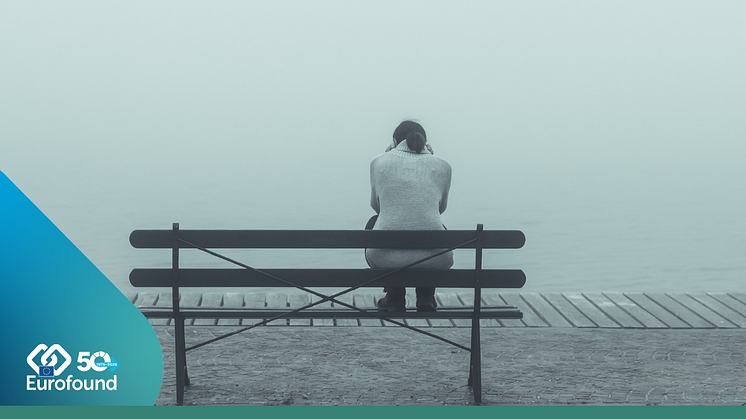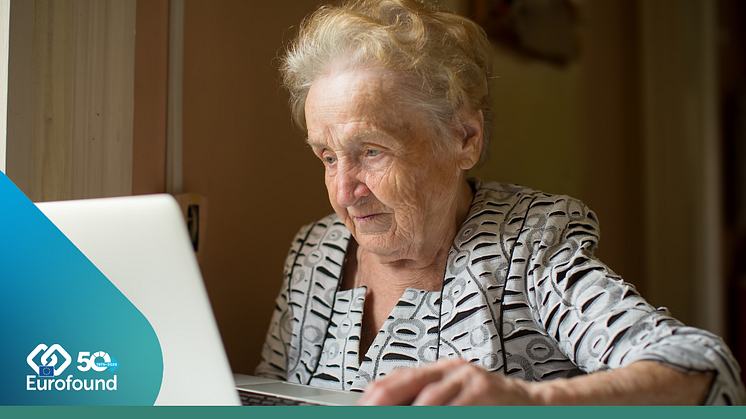
Press release -
Ireland increases mental health provision amidst growing social and economic challenges
A new Eurofound report on mental health in Europe paints a complex picture for Ireland. Despite a 20% increase in the mental health workforce over the past five years, the report reveals significant stressors. Problematical social media use affects a quarter of young girls, economic pressures impact the mental health of 32% of the population, and 17% of those in rural areas report a lack of mental health services.
The Mental health: Risk groups, trends, services and policies report looks at EU and national level data on various indicators and trends in mental health. For the EU as a whole, the research finds that the long-term decline in suicide death rates has stalled, marking an alarming reflection of poor mental health in Europe. Suicide was the leading cause of deaths among 15-29-year-olds in 2021 (18.9% of deaths among this age group were by suicide), ahead of traffic collisions (16.5%). Eurofound analysis also reveals that in 2021 poor mental health resulted in 11.1 million years of life lost or lived with disability.
For Ireland specifically, Eurofound’s analysis highlights some positive trends as inpatient admissions for depressive and anxiety disorders have returned to pre-pandemic levels. National level indicators show that the mental healthcare workforce is also expanding, with a rise to nearly 12,000 workers in May 2024 – an increase of 20% over a 5-year period.
However, the findings also underscore several areas of concern. Social media is reported as having a particularly negative impact on mental health in Ireland, with 44% of Irish adults reporting it exacerbates their stress and anxiety. Problematic use is particularly high among young girls, which is above average in Ireland and has risen steeply. It affected one in four 15-year-old girls in 2022 (up from 17% in 2018), compared to an average of 14% for the EU as a whole (up from 11%).
Economic and housing pressures are also major stressors. According to Aware - the national organisation providing mental health support, education and information services - a significant portion of the population cites the current economic climate (32%) and housing crisis (26%) as negatively affecting their mental health. Financial worries are a primary concern for 57% of adults and are closely linked to higher rates of depression, especially among the unemployed.
Access to mental health services remains a critical barrier in Ireland. The report’s analysis shows that in 2023, nearly 40% of people who delayed seeking help cited stigma or fear of judgment, while a third did not know where to turn. Shortages and long waiting times, particularly for child and adolescent services, are also a problem, with 17% of people in rural areas citing a lack of local services. Although free counselling is available in some areas, waiting times and other accessibility issues often mean that the private sector is the only feasible option.
While Ireland has made progress, the pervasive influence of digital media, socioeconomic disparities, and ongoing service accessibility problems remain issues to be fully addressed to improve mental health.
- Download the report: Mental health: Risk groups, trends, services and policies
Further information:
- 10 September is World Suicide Prevention Day, which aims to change the narrative on suicide by inspiring individuals, communities, organisations, and governments to engage in open and honest discussions about suicide and suicidal behaviour. Find out more here.
- Eurofound will shortly release an episode of the Eurofound Talks podcast on mental health in Europe. Subscribe to the podcast on Spotify or Apple Podcasts. The episode will also be available free of charge on the Eurofound website.
Support services:
If you have been affected by any of the issues mentioned in this article, please reach out for support from relevant health and care services in your country.
People based in Ireland can contact the following services:
- DRCC - 1800 77 8888 (free, 24-hour helpline)
- Samaritans – 116 123 or email jo@samaritans.org (suicide, crisis support)
- Pieta – 1800 247 247 or text HELP to 51444 – (suicide, self-harm)
- Teenline – 1800 833 634 (for ages 13 to 19)
- Childline – 1800 66 66 66 (for under 18s)




